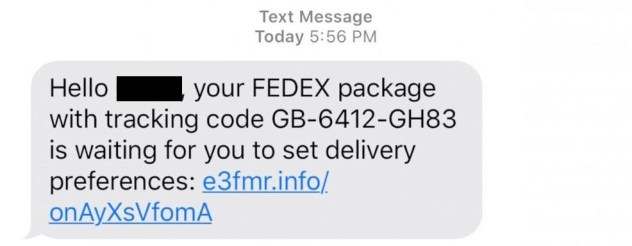No, you can’t get your vaccination status on your license
By Greg Collier
Most of us know about the icons on our drivers licenses that indicate whether or not the license holder is an organ donor. In many states, it’s a small heart in one of the corners of the license. In others, it just says ‘organ donor’ listed somewhere on the card. Regardless if you’re a donor or not, we’ve all come to accept these indicators on our drivers licenses. Maybe because of that acceptance, scammers think that we’ll fall for another indicator on our licenses that indicate a more modern status.
The state of Florida is warning its residents about a text messaging scam where the impostors are posing as the Florida Department of Highway Safety and Motor Vehicles. The text message claims that you can have your vaccination status added to your driver’s license. With the discussion of so-called vaccine passports, this might seem like a reasonable service. Many entertainment and sports venues are requiring proof of vaccination before attending, so wouldn’t it be convenient to just have it marked on your license? In reality, the state of Florida is offering no such service.
As with most texting scams, the message contains a link that the scammers want you to click on, If you do, you’re taken to a website that looks like it belongs to the Florida DMV. You’ll then be asked for such personal information as your Social Security number, your driver’s license number, and you’ll even be asked to upload a photo of your license. This scam is an identity thief’s dream.
There are a couple of things to keep in mind to protect yourself from scams like this. The first is to never click on a link in a text from someone you don’t know. Often they’ll take you to risky websites or inject your device with malware. The other thing to keep in mind is that government agencies never use text messaging to announce new services.












Leave a Reply